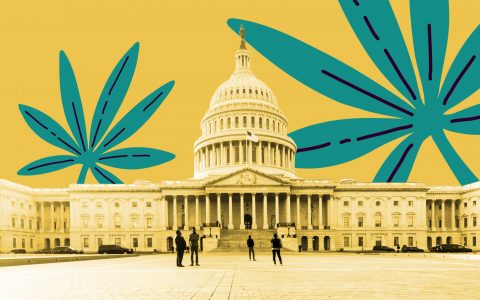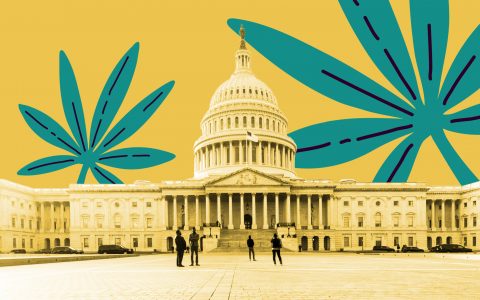The STATES Act, one of the leading efforts to end cannabis prohibition at the federal level, has stepped back into the spotlight.
Sens. Elizabeth Warren (D-MA) and Cory Gardner (R-CO) this week reintroduced the bipartisan bill, which would allow states to craft their own policies on cannabis. While it wouldn’t legalize the drug nationally, it would largely resolve the existing conflicts between state and federal law.
But although the measure has support on both sides of the aisle in the Capitol—and President Trump has signaled last year that he’ll “probably end up supporting” it—it’s by no means a done deal.
Created by Coalition
The Strengthening the Tenth Amendment Through Entrusting States (STATES) Act was first introduced last year by Warren and Gardner—both of whom represent states that have legalized cannabis— after then-Attorney General Jeff Sessions rescinded the Cole memo, an Obama-era policy document that shielded legal cannabis states from federal interference.The act was intended to replace and expand on the Cole memo, and to enshrine cannabis protections in law rather than the Cole memo’s nonbinding Justice Department policy. In addition to harmonizing state and federal cannabis laws, it would also fund further inquiry into matters such as cannabis and traffic safety.
The newly reintroduced version has already earned the support of members of both main political parties. Although Warren, who is running for president in 2020, was absent from Wednesday’s event, Gardner was joined by his peers in the House of Representatives, who have put forward a virtually identical bill. They included Democratic Reps. Earl Blumenauer (OR), Barbara Lee (CA). and Joe Neguse (Colorado), as well as Republican Reps. David Joyce (Ohio) and Matt Gaetz (Florida).
“It’s past time for Congress to clarify cannabis policy on the federal level and ensure states are free to make their own decisions in the best interest of their constituents,” Joyce said in a statement. “The STATES Act does just that by respecting the will of the states that have legalized cannabis in some form and allowing them to implement their own policies without fear of repercussion from the federal government.”
Will It Pass? Roadblocks Remain
Although the STATES Act boasts broad bipartisan support, it’s by no means guaranteed to pass. The political climate around cannabis has changed dramatically since the Act was introduced a year ago. There’s a chance that progressive Democrats will shoot down the act, which doesn’t address questions of social justice or equity. A legalization measure in New York died this month largely because lawmakers couldn’t agree on such issues.
“Communities of color are being locked out of this industry,” Rep. Lee, who nevertheless supports the STATES Act, said at the bill’s reintroduction. “We have the opportunity to make this the most equitable industry in the country. Right now less than 1% of the cannabis industry is owned and operated by people of color. We can do much better than that.”
Sponsors will also have to push the act through both the Republican-held Senate and the House Judiciary Committee, which is currently bogged down in investigations related to Russian interference in the 2016 election and Special Counsel Robert Mueller’s recent report.
“That committee is pretty overwhelmed,” acknowledged Rep. Ed Perlmutter (D-CO), who supports legalization. “They’re dealing with a dozen different pressing problems.”
Optimists, however, argue that momentum for cannabis reform is building, particularly after the SAFE Banking Act cleared the House Financial Services Committee last week. Prohibition’s end, they say, is drawing near.
“This is an opportunity for us to break the logjam,“ said Rep.Blumenauer, a longtime legalization proponent and co-founder of the Congressional Cannabis Caucus. “The STATES Act is the next logical step in a comprehensive blueprint for more rational federal cannabis policy. It’s time for Congress to catch up with the rest of America are and fix a badly broken system.”







